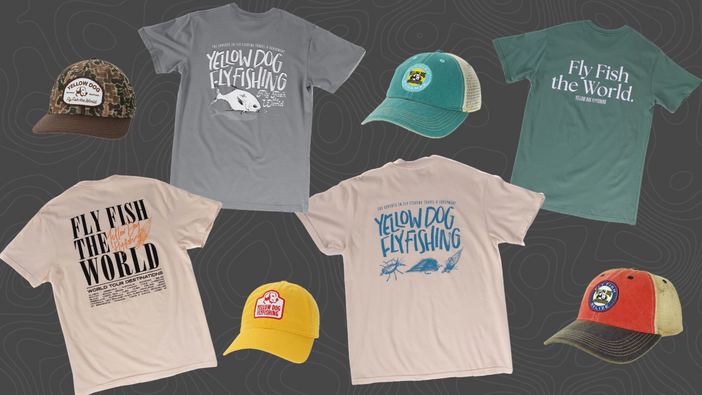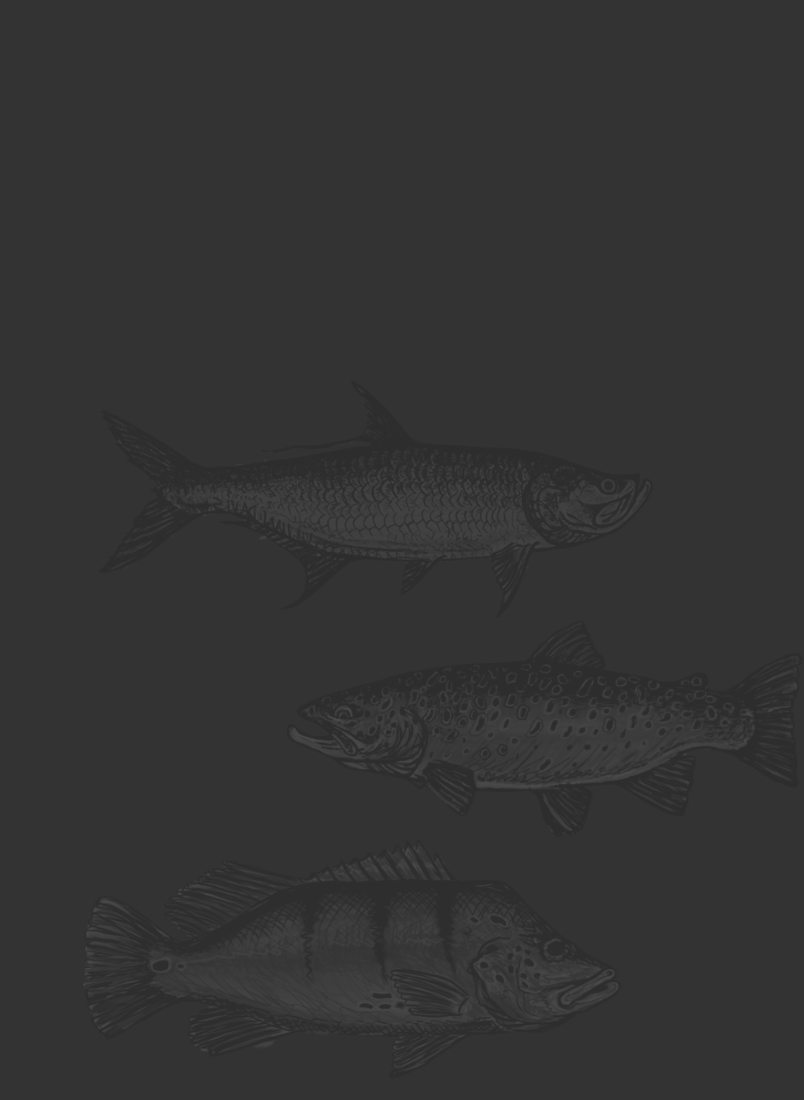Great advice from Sheila M Hassan on casting practice prior to your next fishing trip – something we always recommend here at Yellow Dog!
When preparing for your destination-fishing trip most people focus on the equipment needed and forget about preparing for the actual fishing. Remember to include casting practice as part of your essential steps to ensure a successful trip. If you spend a small amount of time sharpening your casting skills, you will be more likely to make the tough cast when it really matters. Here are a few guidelines to help you organize your pre-trip practice.
1. Practice For What You're Planning to Do
Identify the specific casting needs for your trip. Will you need long casts in windy conditions on a tropical flat? Perhaps delicate presentations with small flies on a quiet stream are required. Consider the type of fishing and the conditions you are likely to encounter. Be sure to practice the skills you will most likely use on the upcoming trip.
Example: If you're planning on fishing the salt for bonefish, practice your double haul and deliver your fly with accuracy and few false casts. If you're going to New Zealand or spring creek fishing in Argentina, practice delivering dry flies within 10-40 feet with delicacy and accuracy.
2. Practice for the Unexpected
Many fishing days have been saved by making the right presentation in an unexpected situation. Make sure to practice for the unexpected. Practice your techniques for both long and short distances. Practice with wind conditions from all four sides as the wind is rarely from the direction you want.
Example: Utilize the alarm feature on your smartphone. Set the timer to ten seconds, click "start," set the phone down, and then make an off-shoulder cast to a target at forty feet before you run out of time.

3. Know Your Gear
Practice with the gear you plan to use on your trip. Use the same rod, reel, and fly line you will use on your trip. This is particularly important if you are planning a trip where you are using specialty gear, you do not routinely fish with at home. This helps you be comfortable with the outfit and will increase your confidence in being able to make the cast when the pressure is on. Consider purchasing an extra fly line just for practice. This allows you to practice with the exact gear you will use for fishing. When you leave for your trip, you can put on your new fly line and bring your practice line for a spare. Your trip is worth the extra money of an additional fly line.
4. Know Your Casting Capabilities
Mark your fly line to help your practice. Do not guess at how far you are casting. You need to know your abilities and be able to measure your progress as you practice. Mark your line for distance with a felt marker. I recommend two markings: a single one-inch mark at 40 feet, and two one-inch marks at 60 feet. This helps you accurately gauge your casting abilities and distances to the target.
Example: By utilizing markers on your fly line, you will also be able to effectively communicate to your guide how far you're casting and gauge the distance of incoming fish.

5. Use The Leader You Plan to Fish With
Use the same leader construction you anticipate using on the trip. This is one of the most overlooked areas of practice. Do not cut corners just because it is a practice outfit. Your leader plays a pivotal role in the layout of your cast. Only by using the exact leader construction for practice, can you be sure you are practicing for the presentation you want to achieve.
Example: Tie or buy the SAME leader you plan on fishing with. The longer the leader you plan on fishing with, the more important this becomes. It's rare we use 14-foot leaders, but it can happen when fishing for permit or picky trout.
6. Don't Just Cast the Leader
Use a piece of yarn, or an old fly with the point cut off so you can see your presentation. As you practice, focus on where and how your fly actually lands, not just how much line you cast. If the line lands in a pile, and your fly is not at your target area, you are not achieving your goal.
7. Targets
Practice with targets. No cast is helpful if it is not on target! Practice executing the cast quickly, but in a calm, non-rushed manner. Avoid excessive false casting. This is rarely an advantage and more often helps you miss an opportunity.
Example: Utilize small cones, hula-hoops, or anything else that would make an ideal target. When avoiding false casting and working on casting with accuracy, you will most likely notice that you will slow down your cast. This is a good thing! Slow everything down and get it right the first time.

8. Schedule Practice Sessions
Develop a timeline for practice sessions. Ideally, the practice should start at least a month before your trip. This will allow you to practice in short frequent sessions, rather than rushing this as the trip draws near. By allowing yourself time to prepare adequately, you will build your confidence in your skills and transfer this to execution when it matters. Keep your practice outfit assembled in your garage. This encourages you to take the time for practice. You can practice for as little as 5-10 minutes at a time. Some practice is better than no practice. As you practice, envision the fishing situation and your casting success. If you envision a successful situation you are less likely to be rattled when the big fish and big moment arrives.
Remember to have fun. The practice for your trip enhances the anticipation of the trip, which always passes too quickly.
Sheila is a Federation of Fly Fishers Master Certified casting instructor, one of a handful of women with this credential. She is the director of the Wulff School of Fly Fishing and is a member of the pro staff for the R.L. Winston Rod Company and Ross Reels. She has traveled extensively, catching (and releasing) everything from bluegill to blue marlin. She is an IGFA world record holder for bonefish and bluefish and teaches casting seminars and private lessons throughout New England.
Relevant Articles:
- Fly Fishing the Salt: Diving into the World of Tarpon, Permit, and Bonefish
- Bonefish Leader & Tippet Advice from Jeff Currier and Oliver White
- Perfecting Your Bonefish Presentation and Hook Set
- Tides and Fly Fishing: Planning Your Trip Around the Tides
- 7 Bits of Advice to Plan A Destination Fly Fishing Trip Right
- Don't Rock the Boat: Tips on Being a Better Boat Mate
WAYPOINTS Podcasts:






























